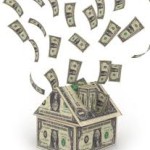Follow Me
Subscribe to My Weekly Newsletter
Time to Reduce Your Asking Price?
- Feb
- 02
- Posted by Bregman Properties
- Posted in Blog, Monday Morning Update
 Price Your House Correctly! Pricing your house correctly is the most important thing that you can do to sell your house in a timely fashion and at the highest possible price. Price your house too high and your house will languish on the market. A house that sits on the market too long will get “stale” and will typically sell for less.
Price Your House Correctly! Pricing your house correctly is the most important thing that you can do to sell your house in a timely fashion and at the highest possible price. Price your house too high and your house will languish on the market. A house that sits on the market too long will get “stale” and will typically sell for less.
If You List on the High Side: Listing your house for sale higher than other similar houses will generate an average amount of showing activity in the beginning. However, if your house is priced too high prospective buyers will quickly lose interest and your house will become a “stale” listing. Listing your house at a price that is higher than other comparable houses is fine if your house is in above average condition or if you are a seller who is not highly motivated.
If You List on the Low Side: By pricing your house in the lower range of the comps you will create a lot of activity and interest from buyers who smell a good deal. This strategy typically leads to a quick sale and may even generate enough interest from buyers to bring multiple offers and a final sale price above the asking price! This strategy is best suited for a motivated seller who is looking for a timely sale at a fair market price.
Click Here for more pricing information
Want to Know what your house is worth: Click Here
Let Me Help You Find Your new home: Click Here
Bregman Properties Appreciates Your Referrals!
Six Reasons to Reduce Your Home’s Asking Price
By: G. M. Filisko, Houselogic
While you’d like to get the best price for your home, consider our six reasons to reduce your home price.
Home not selling? That could happen for a number of reasons you can’t control, like a unique home layout (I call this “funky” – TB) or having one of the few homes in the neighborhood without a garage. There is one factor you can control: your home price.
These six signs may be telling you it’s time to lower your price.
1. You’re drawing few lookers
You get the most interest in your home right after you put it on the market because buyers want to catch a great new home before anybody else takes it. If your real estate agent reports there have been fewer buyers calling about and asking to tour your home than there have been for other homes in your area, that may be a sign buyers think it’s overpriced and are waiting for the price to fall before viewing it.
2. You’re drawing lots of lookers but have no offers
If you’ve had 30 sets of potential buyers come through your home and not a single one has made an offer, something is off. What are other agents telling your agent about your home? An overly high price may be discouraging buyers from making an offer.
3. Your home’s been on the market longer than similar homes
Ask your real estate agent about the average number of days it takes to sell a home in your market. If the answer is 30 and you’re pushing 45, your price may be affecting buyer interest. When a home sits on the market, buyers can begin to wonder if there’s something wrong with it, which can delay a sale even further. At least consider lowering your asking price.
4. You have a deadline
If you’ve got to sell soon because of a job transfer or you’ve already purchased another home, it may be necessary to generate buyer interest by dropping your price so your home is a little lower priced than comparable homes in your area. Remember: It’s not how much money you need that determines the sale price of your home, it’s how much money a buyer is willing to spend. (This is an important statement. The market, not YOUR need, will always determine the final sale price. – TB)
5. You can’t make upgrades
Maybe you’re plum out of cash and don’t have the funds to put fresh paint on the walls, clean the carpets, and add curb appeal. But the feedback your agent is reporting from buyers is that your home isn’t as well-appointed as similarly priced homes. When your home has been on the market longer than comparable homes in better condition, it’s time to accept that buyers expect to pay less for a home that doesn’t show as well as others.
6. The competition has changed
If weeks go by with no offers, continue to check out the competition. What have comparable homes sold for and what’s still on the market? What new listings have been added since you listed your home for sale? If comparable home sales or new listings show your price is too steep, consider a price reduction.
 818-915-3360
818-915-3360
